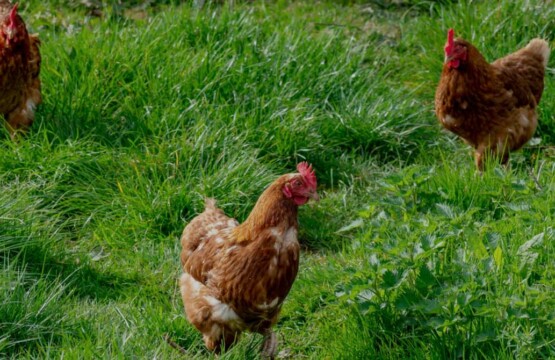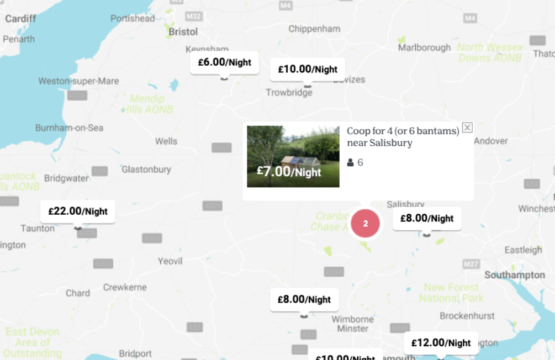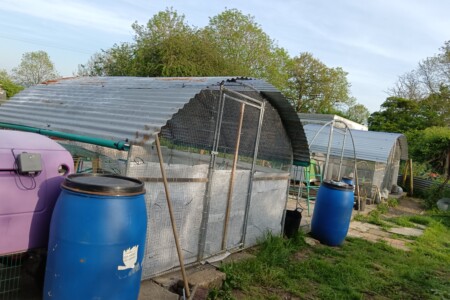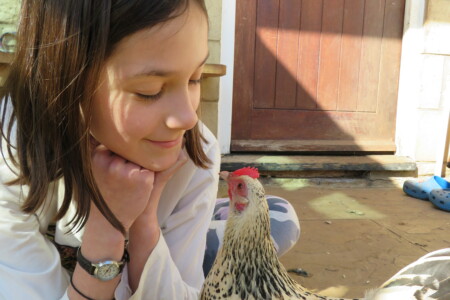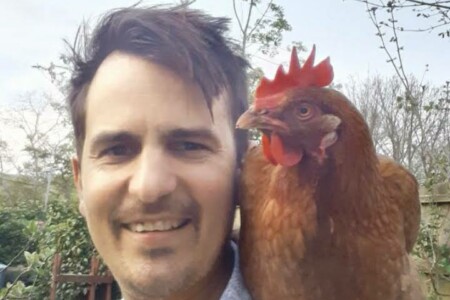Interview with English Country Life: Slowing down and escaping to the Country
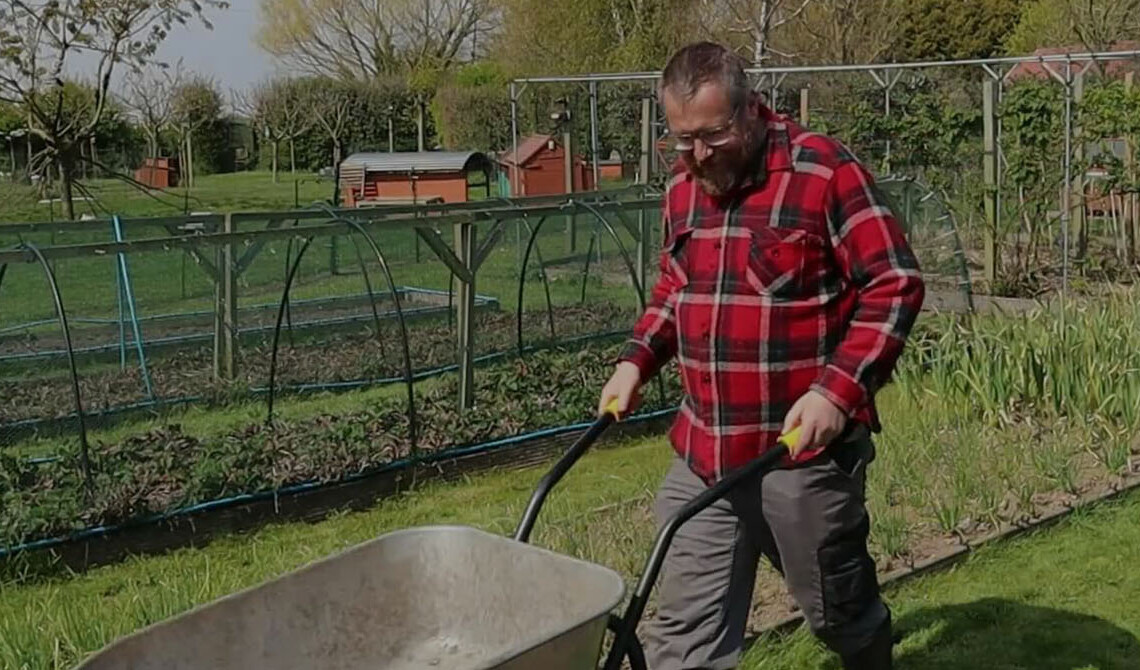
As we get into the swing of things in 2022 with Flock Down coming to an end, we’re really pleased to announce a partnership with English Countryside Life, starting with our, “Win the ultimate Chicken Hotel starter kit!” competition.
In their own words, English Country Life are “Two people trying to live in a self-sustaining way, growing and preserving food, breeding chickens, making many of the things we use in everyday life.”
That gets a solid thumbs up from Betsy.
At the core of English Country Life is their YouTube channel which has a lot of great content for prospective chicken owners. We’d like to share this playlist in particular: Keeping Chickens for Beginners.
Keeping Chickens for Beginners
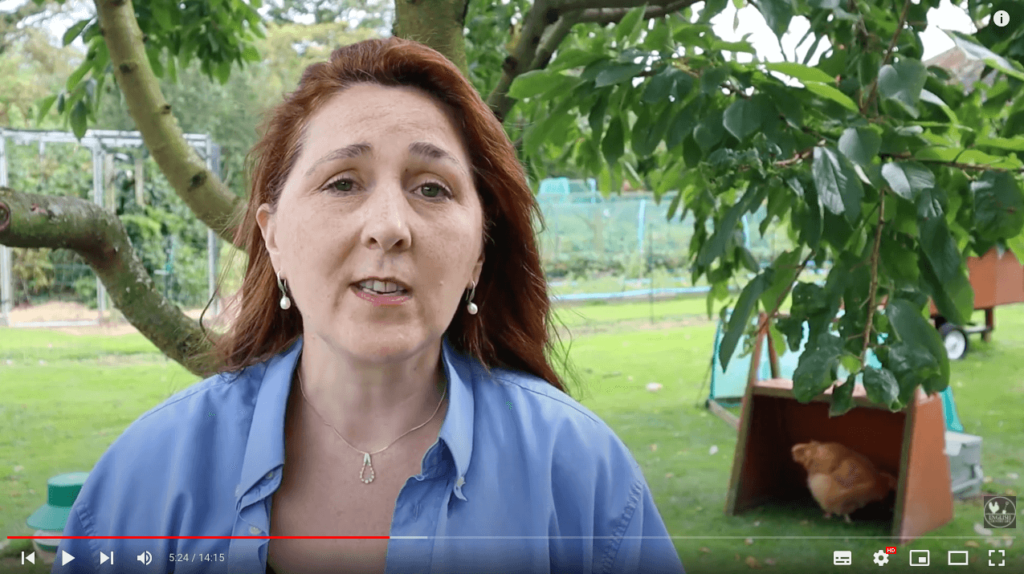
In this playlist, you’ll find content on space and housing, coops and poop (!), food, feeders and drinkers, overall chicken health and much much more.
To get to know Hugh and Fiona more intimately, we did a short Q&A. Enjoy!
Interview with English Country Life
Hugh and Fiona, how long has it been since you left the city?
We moved to our current home in rural Lincolnshire around 12 years ago. We did live in the countryside before this but always close to a city whether that was London, Southampton, Manchester, essentially anywhere that our professional careers took us. We were working fulltime in very high pressure roles but ultimately we wanted a more self-sufficient life where we could reduce our bills and work less. We’ve worked hard to achieve this and our current home allows us to grow a lot of our own food (fruit and vegetables) and of course, we have our wonderful chickens.
When did chickens enter the equation?
Initially our plan to be self-sufficient involved keeping bees and chickens. We decided to start with bees because we believed that it would be easier than chicken keeping. Oh my, we were wrong! Fiona developed a reaction to bee stings and despite the fact that we were stung very rarely it developed rapidly into a serious issue and on medical advice, the bees had to go.
Of course, we didn’t give up on the dream and over a decade ago we got our first chickens. Like most people we started with hybrid egg-layers and quickly became addicted. Within three months we extended the team with our first pure breed Buff Orpingtons. From there we haven’t looked back. Within 12 months we were breeding Orpingtons and as they have natural broody tendencies, the hens incubate, hatch and raise the youngsters. For us it’s tremendously rewarding.
Our chickens are an absolute priority and we spend a lot of time with them. We do sell chickens on a small scale and it’s important to us that any buyer receives Orpingtons that are familiar with people, are keen to spend time with them and are also happy to be handled and picked up. Fiona sits with them everyday and they all compete to get closest to her. They are full of personality and we love nothing more than having our morning coffee on sunny days just watching their antics.
We’d love to hear your all-time favourite three chicken names?
We’ve had some great names for our flock over time. Normally we select them based on personality traits but more recently we’ve been running competitions to name any hens that we have bred or hatched and decide to add to our flock for the longer term. It all started when we asked our Twitter followers to name three rare breed Old English Pheasant Fowl that we had hatched. They are a very beautiful breed which we feel is incredibly under-rated.
Anyway, the first competition resulted in the group being known as The Cheesy Chicks as the winning names were Halloumi, Brie and Gouda. The names made us chuckle so much they had to be the winning names. However we did have to explain the names to our neighbouring farmer who wondered why Fiona was calling “Halloumi” across the field one day! Of course, the Cheesy Chicks have to be our personal 3 favourite names as they’ve been such talking points.
Our latest team members were named after a competition across Twitter, Instagram and YouTube to name the 7 hens joining our breeding flock. The winning names were all on a theme of sweets and our favourite 3 names from this group are Lollipop, Jellybean and Liquorice.
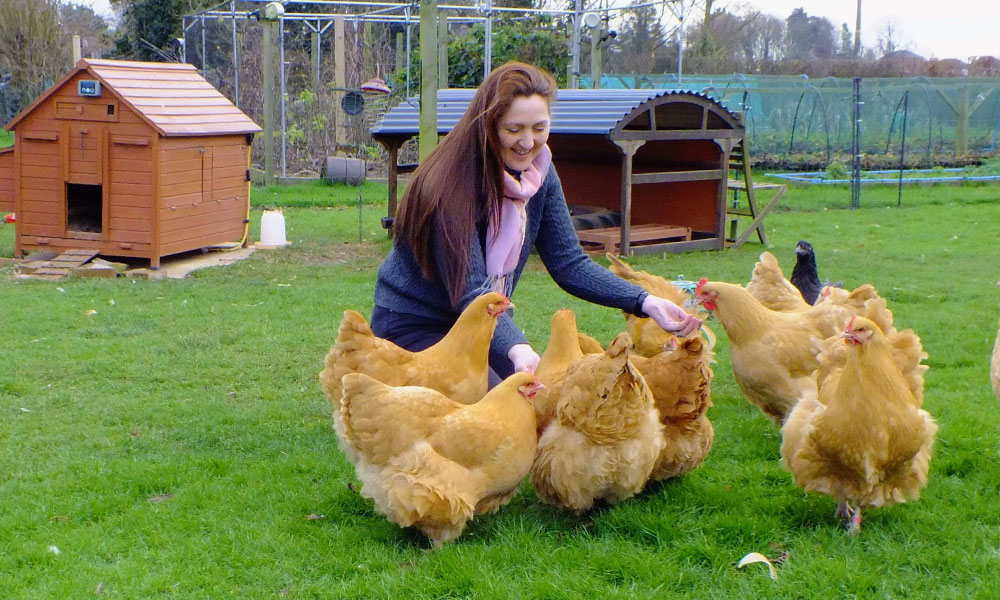
Tell us how you became YouTubers!?
When we started our smallholding we created links with other smallholders on Twitter. It was a great place to connect with like minded people and to support each other with the skills and knowledge that we needed. Over time as we gained more knowledge we tried to help others in the same way that we had been supported when we started out.
Eventually someone suggested we started a YouTube channel. The suggestion kept coming up but we resisted for quite some time. It’s very different putting yourself out there on video rather than text based conversations on Twitter, but now we love it. It’s just another means of conveying information to help chicken keepers and smallholders
Growing food, making shoe polish, chickens… How do you decide on your content?
We only like to make content that we’re enthused by. Sometimes it might be something that we’re working on and think it might be interesting to other people. Sometimes it might be drawn from a list of video ideas that we’ve drawn up over time. The ideas come both from ourselves and our subscribers and it has to be said that some of our best suggestions come directly from our subscribers on YouTube. The interaction is wonderful.
Chicken based content is one of our most popular categories and we never seem to run out of new ideas as we’re still gathering knowledge after more than 10 years. We’ve published information for new chicken keepers, chicken breeders, simple interpretations of the complex rules surrounding chickens such as the UK Avian Influenza Restriction Rules and our most popular video of all time is called “Chicken Communication: Calls, Body Language & what they mean”. We’ve been blown away by the interest in this video. It doesn’t cover every sound that a chicken will make as we’re restricted by what we could capture on film but it does explain many of the sounds they’ll make. In addition it explains how the pecking order works, how it maintains a balance in the flock and how our broody hens teach their chicks the structure of the flock.
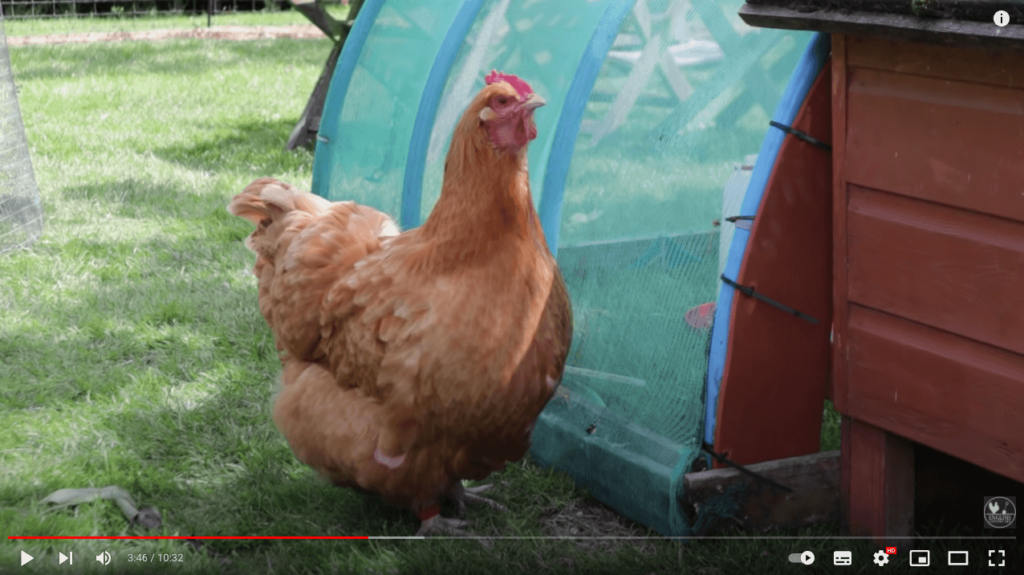
What are your top three tips for moving to the countryside?
We published a series of videos in a Playlist called “Smallholding/Homesteading 101” on our Youtube channel that was designed to support anyone who is contemplating a move to the country. There are 3 key questions that we recommended people ask themselves:
- What do you and each member of your family enjoy as pastimes? If you already enjoy country pursuits that’s wonderful but rural living can make certain pastimes difficult. This leads onto question 2.
- What are you prepared to compromise on? If you listed going to the theatre or eating out at eclectic restaurants this may be difficult in a rural community. You may have to compromise by visiting the theatre on irregular city breaks or trading in your eclectic restaurants for the village pub. The biggest compromises may be on activities for children swapping multiple activities like sport, dance, clubs and events for one or two activities due to travel constraints. However, if you can engage them in a new outdoor lifestyle it can be very rewarding.
- Do you have any location restrictions? It may be your family is centred in one location but if your wider family are excited for your adventure they may be happy for you to move further away. It’s worth addressing if your job ties you to a specific location or if this can be translated to a similar role elsewhere. It can be scary to change your employment and your home at the same time but very few jobs exist in one location only.
Finally, what would you name your Chicken Hotel?
We already have a nickname for our free range chicken field and that would have to be the name for our Chicken Hotel. Our Buff Orpingtons are known as the Floofs, Fiona is known as The Floof Lady (@theflooflady) and we call our chicken field Floof-topia!
It has to be Floof-topia.

